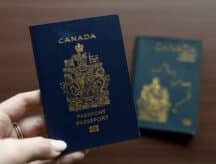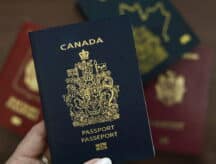Understanding the Second-Generation Cut-Off Rule for Canadian Citizenship
A person may be eligible for Canadian citizenship if they were born outside Canada and at least one of their biological or legal parents at birth was a Canadian citizen when they were born. Canada limits citizenship by descent to the first generation born outside Canada to a Canadian parent.
Get a Free Legal Consultation on Applying for Proof of Canadian Citizenship
The Canadian Citizenship Act has been amended numerous times since first coming into effect in 1947. For years, the Act allowed Canadian parents to pass citizenship to their children born outside of Canada onto indefinite generations as long as foreign-born decedents had registered with the government by a certain age.
In 2009, the government enacted a second-generation cut-off for Canadians born abroad. The immigration minister at the time, Diane Finley, said the change was enacted to discourage “Canadians of convenience”, by ensuring that citizens have a real connection to Canada.
The current lawsuit
A lawsuit involving 23 individuals from seven families is challenging the second-generation cut off rule introduced in 2009, claiming that the rule discriminates based on birthplace, violates mobility and liberty rights, and disproportionately disadvantages women when they had to give birth outside Canada due to circumstances beyond their control.
The Ontario Superior Court of Justice has to determine if Canada is violating the Charter by restricting the passing of citizenship by descent to the first generation born abroad only.
According to the Toronto Star, the families involved are arguing that the government position “oversimplifies the complicated reality of the many moving parts of these choices, such as access to health care, cost of health care, risks of travel, loss of job and income and jeopardy to career advancement.”
At the time, Minister Finley’s justification of the second-generation cut-off invoked concerns about “Canadians of convenience” who would never set foot in Canada, had no real connection to Canada, and simply sought citizenship to preserve the option of living in Canada. However, the applicants in the lawsuit are not Canadians of convenience. They returned to Canada as small children and spent their formative years in Canada, said Sujit Choudry, counsel for the families.
While Canadians born in Canada and naturalized Canadians can pass their citizenship to their children born abroad, Canadians born abroad by descent cannot do so. Counsel for the families argue that this is an arbitrary distinction and the epitome of discrimination.
How to apply for proof of citizenship
The Canadian government’s formal process to find out if you are a citizen is to submit a “proof of Canadian citizenship” application, also known as applying for a Canadian citizenship certificate. The Canadian citizenship certificate is issued by Immigration, Refugees and Citizenship Canada (IRCC) and along with the Canadian birth certificate, it is only one of two documents accepted by Passport Canada as proof of Canadian citizenship.
You may apply for a Canadian citizenship certificate at any time during your life, and you may submit the application irrespective of whether your Canadian parent is alive or deceased.
To apply for a Canadian citizenship certificate, you must download the application package available on IRCC’s website. IRCC will require evidence that at least one of your legal or biological parents at birth was a Canadian citizen.
You can submit the application online on IRCC’s website. Once they receive your application, you will receive an “acknowledgment of receipt” and your file will be reviewed and processed.
Get a Free Legal Consultation on Applying for Proof of Canadian Citizenship
- Do you need Canadian immigration assistance? Contact the Contact Cohen Immigration Law firm by completing our form
- Send us your feedback or your non-legal assistance questions by emailing us at media@canadavisa.com






